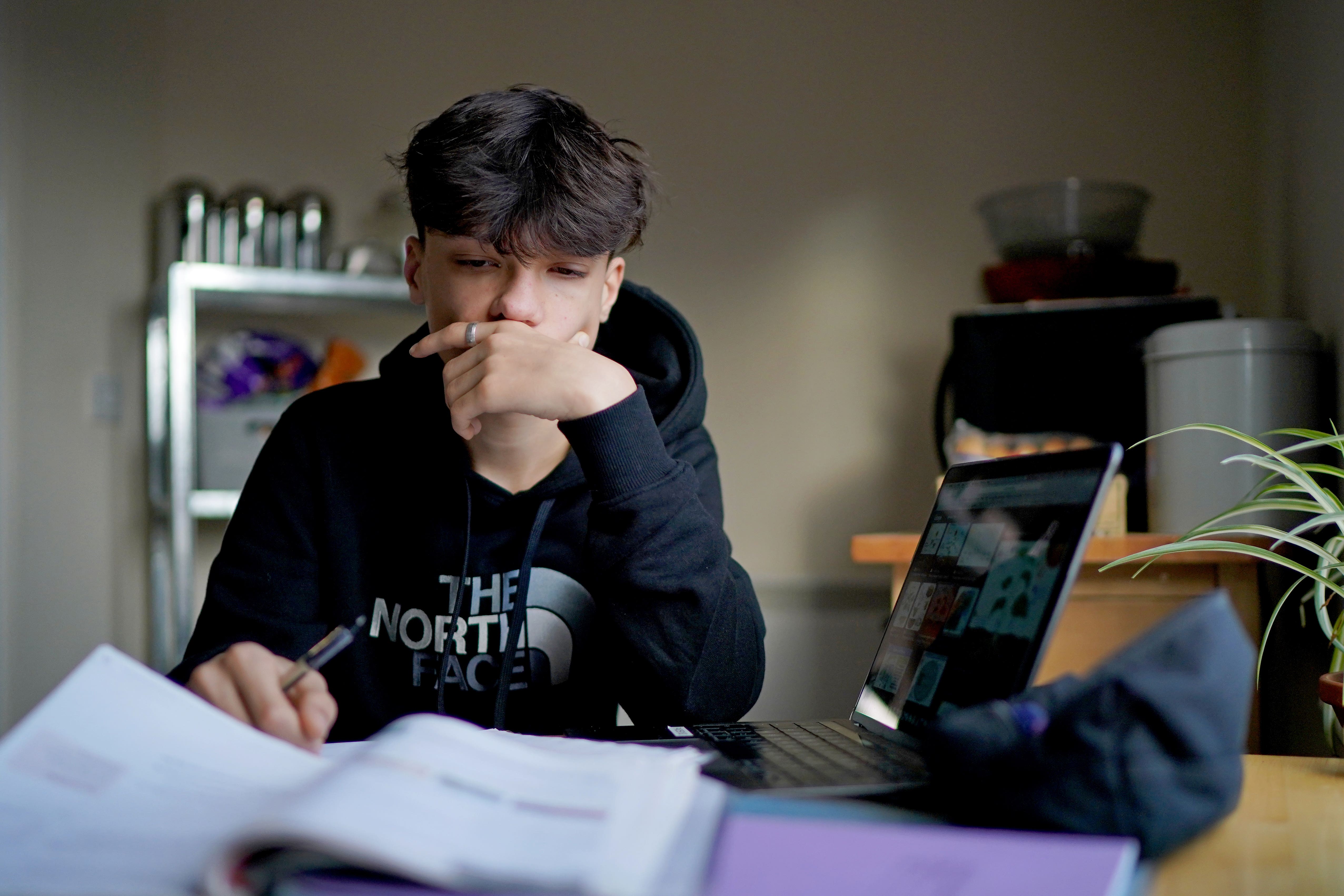Teacher strikes: Do I need to homeschool my child today?
As teachers strike, you may be wondering how to get the most out of a day where childcare is tricky. By Imy Brighty-Potts

Your support helps us to tell the story
From reproductive rights to climate change to Big Tech, The Independent is on the ground when the story is developing. Whether it's investigating the financials of Elon Musk's pro-Trump PAC or producing our latest documentary, 'The A Word', which shines a light on the American women fighting for reproductive rights, we know how important it is to parse out the facts from the messaging.
At such a critical moment in US history, we need reporters on the ground. Your donation allows us to keep sending journalists to speak to both sides of the story.
The Independent is trusted by Americans across the entire political spectrum. And unlike many other quality news outlets, we choose not to lock Americans out of our reporting and analysis with paywalls. We believe quality journalism should be available to everyone, paid for by those who can afford it.
Your support makes all the difference.As teachers in England and Wales who are members of the National Education Union (NEU) take part in walkouts, parents may be concerned about the imminent disruption to more than 23,000 schools.
This will inevitably have an impact on kids and parents alike, whether due to childcare stresses or concern they may fall behind.
“Parents may feel it has been sprung on them, but one of the most important things to remember, is not to let your stress come out in front of your child,” says Dr Audrey Tang, psychologist and former secondary school teacher.
“This is affecting teachers across the board. Younger children may not understand why people are stressed, and there may be some feelings of blame towards them if it is not discussed.”
If your child’s school is one of those with strikes, it may be tricky to work out what the right thing to do is, and homeschooling may cause more stress than it’s worth.
What should I do when my child is already behind and struggling?
“If they are vulnerable, with a statement of needs, they should be able to go into school for supervised learning time,” consultant clinical psychologist Emma Citron explains.
However, she says, if they are just a bit behind with learning in general, try not to stress about it.
“Maybe encourage a bit of reading together, but the odd day will not hurt. Be sensitive to their responses and how they are feeling. Use the day for something more enjoyable. Use it as though they are off sick – one day will not ruin their prospects,” says Citron.
I want to homeschool, but have to work
Not everyone has the luxury of being able to homeschool if they want to. And it may be worth trying to accept your child is off and there’s nothing you can really do – this isn’t lockdown.
“Try not to put too much pressure on yourself and your child,” advises Citron. “Look at the positive bits of learning that can take place, but accept that it is one day. Don’t go back to that miserable Covid time by putting loads of pressure on yourselves to homeschool.”Is it OK to let my child have a day off?
“People are a bit saturated with homeschooling. Unless the child is really motivated to do it, it may not be worth it,” says Citron.
“If you have taken the day off work, use this as a chance to do something that makes the most of quality time, like a day out or something fun. If they are a teen, it may be worth encouraging half a day of revision, particularly if they are stressed about work, but also encourage a walk or something relaxing,” she adds.Some schools will have put schoolwork on their Google classrooms, so do take a look, but try not to fret too much. They may learn more by spending time out and about with you.How do I talk to my child about strikes?“You need to use accessible language when it comes to strikes,” says Tang.
“Lean into the facts, share that teachers don’t want to disrupt education and share why they want to take a stand.”
You can even use it as a lesson of standing up for what you believe in, Tang suggests. “This is a good time to talk to kids about boundaries,” she notes.
“As a parent, you may have personal views on this, but try and use the facts. Allow kids to ask questions and see how they are thinking about it – don’t dismiss it as though they won’t understand.”